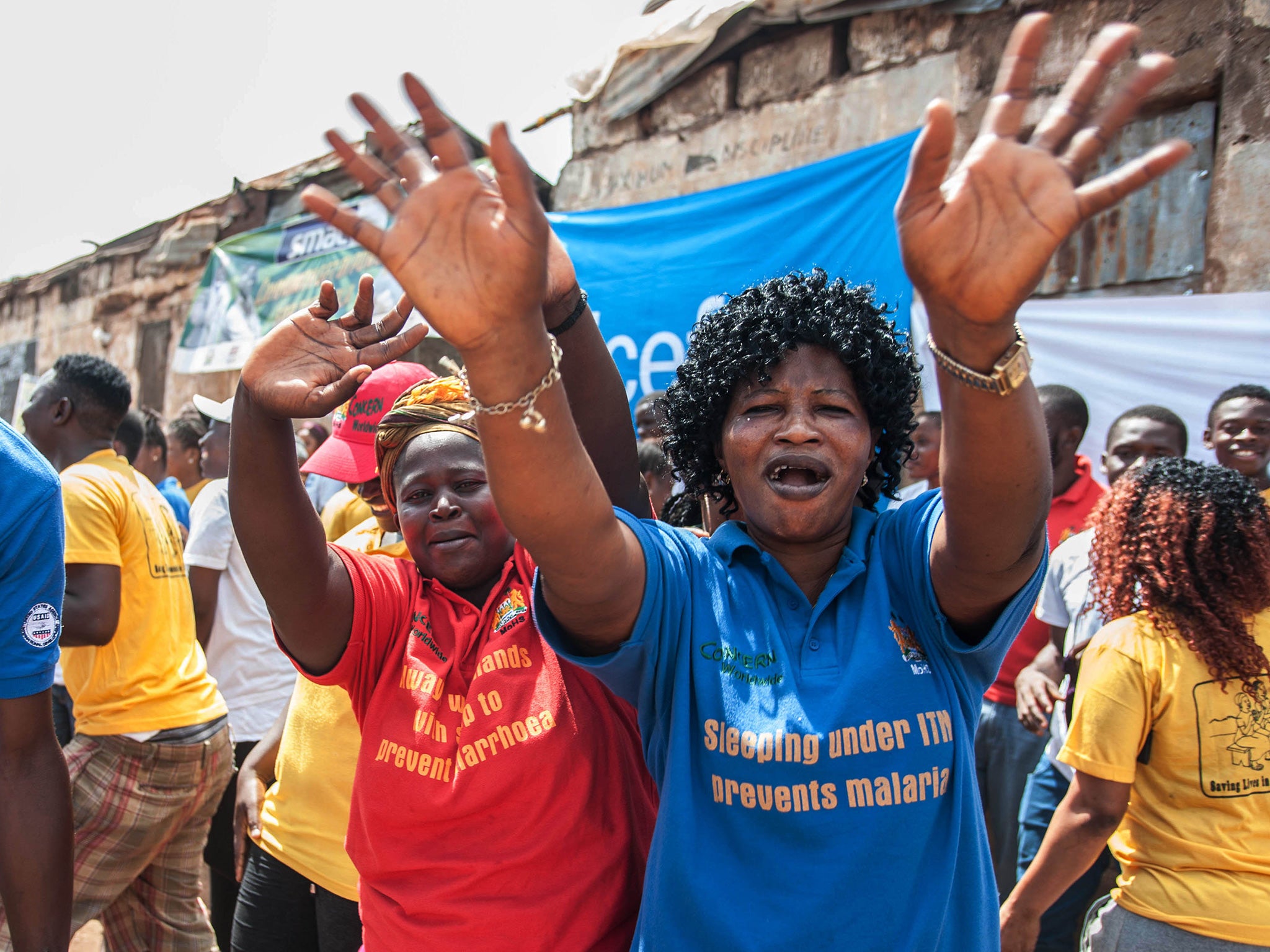Ebola: After learning hard lessons Sierra Leone is better prepared should the disease return
Today, as we enter a post-Ebola Sierra Leone, we see a stronger, more resilient country

Your support helps us to tell the story
From reproductive rights to climate change to Big Tech, The Independent is on the ground when the story is developing. Whether it's investigating the financials of Elon Musk's pro-Trump PAC or producing our latest documentary, 'The A Word', which shines a light on the American women fighting for reproductive rights, we know how important it is to parse out the facts from the messaging.
At such a critical moment in US history, we need reporters on the ground. Your donation allows us to keep sending journalists to speak to both sides of the story.
The Independent is trusted by Americans across the entire political spectrum. And unlike many other quality news outlets, we choose not to lock Americans out of our reporting and analysis with paywalls. We believe quality journalism should be available to everyone, paid for by those who can afford it.
Your support makes all the difference.For 48 hours last week it was as if the people of Sierra Leone held their collective breath, their heads in their hands and their fingers covering their eyes. Just two days before the country was due to be declared Ebola-free, an Ebola-positive test result had been reported from Kono, a district of Sierra Leone bordering Guinea.
In those hours before an investigation revealed that incorrect labelling of specimens had been the cause of the false positive, the country was on tenterhooks. But despite this temporary setback, he World Health Organisation has finally declared Sierra Leone “Ebola-free”.
This goal had seemed almost unattainable at times. Reaching zero cases came almost a year after the epidemic peaked in Sierra Leone, when 537 new cases were recorded in a single week.
November 2014 was very different from Sierra Leone today – it was filled with tired, fraught exchanges, exasperatingly long working hours and feelings of desperation as the number of beds available to treat Ebola patients were too few to meet the demand, the number of ambulances insufficient, the fear of those quarantined resulted in stigma and exclusion, and the dead remained in their houses, sometimes for days, often resulting in further preventable infections.
Today, as we enter a post-Ebola Sierra Leone, we see a stronger, more resilient country whose government is looking to lead the nation back towards its development agenda. This was defined in its strategy Agenda for Prosperity 2017, which identified such priority areas for intervention as health, education, social protection and the private sector – the area most hit by secondary impacts of the outbreak.
Similarly, to guard against future outbreaks of this magnitude, plans are in place to establish preparedness structures both at national and district level, led by the Office of National Security in collaboration with the Ministry of Health and Sanitation.
Interventions implemented during the latter end of the Ebola epidemic will also contribute to preparedness. Systems and innovations created as part of the Ebola response are now in place to swiftly contain future outbreaks, before they reach the extreme levels that we have seen in West Africa in the past 18 months. Smart-phone applications have been developed to make the previously cumbersome paper-based systems of contact tracing, disease surveillance and quarantine management quicker and more efficient. Public call boxes have been installed, connecting people to the national 117 helpline in villages without access to mobile phone networks, which means alerts can be raised quickly, even by remote communities.
Sierra Leone’s resilience never fails to amaze me, and its sense of humour never falters. Yet while its people emerge from this epidemic, still smiling, the message is clear: their fight is not yet over. Ebola has been found to reside in the bodily fluids of survivors, with sexual transmission possible until nine months after first infection. So, while it is important to celebrate and recognise the enormity of being declared “Ebola-free”, we must nevertheless remain vigilant.
In Krio, the most widely spoken language, there is a saying: “Yu fol dom, yu grap” (You fall down, you get back up). Today marked the day Sierra Leone got back up, having fought long and hard to beat Ebola. Today, its people take their first steps along their bumpy road to rebuilding their beautiful country.
Charlotte Walker was employed in Sierra Leone by the charity Goal Ireland as Director of the Difd Ebola Emergency Response Fund (Deerf)
Join our commenting forum
Join thought-provoking conversations, follow other Independent readers and see their replies
Comments